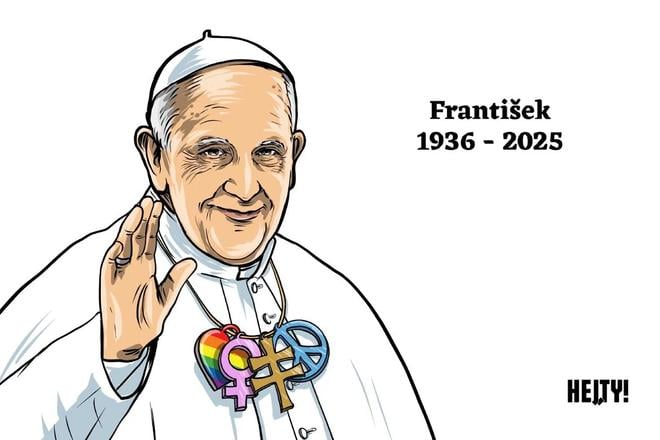Even in the way he envisioned his own funeral, Pope Francis made clear his rejection of luxury and the privileges so readily claimed by rulers and politicians. He approved a simplified ceremony, chose to be buried outside the Vatican, and requested a single plain wooden coffin instead of the traditional three.
His empathy for the poorest, the marginalised, and for migrants forms a message that transcends religious boundaries. It is accessible to everyone, regardless of whether they consider themselves liberal or conservative.
When he visited Slovakia in 2021, he travelled to the Roma community of Luník IX in Košice and told them they were his brothers, saying he knew how often they were subjected to “prejudice and merciless judgement”.
In a sermon in Prešov, he rejected political religion — the exploitation of the cross for political ends. He did not name specific politicians, but it is now clear that even in Slovakia, some had “converted” and begun invoking faith as part of their political marketing.
Another of his powerful messages — one that resonates beyond Catholic circles — was his rejection of corruption. “Yes to sinners, no to the corrupt,” he said in 2013 during one of his morning meditations, drawing a distinction between a sinner who is aware of his fall and seeks forgiveness, and a corrupt person who consciously harms both the Church and society.
He called the double life of the corrupt “varnished decay”. Later, he described corruption as the gangrene of the people, an ancient evil, even “the devil’s dung”.
At a time when many governments tell voters that corruption is a lesser evil than invented enemies, this message is more vital than ever.
His stance applied not only to politics but to the Church itself. In 2021, he issued a new Motu proprio decree requiring senior Church officials to declare that they are not under investigation or prosecution for crimes such as terrorism, money laundering or tax evasion. They must also not hold assets in tax havens or invest in businesses whose activities contradict Church teachings.
Pope Francis’s legacy cannot be reduced merely to humility or his rejection of the opulence of the powerful, nor even to his fight against poverty and corruption.
He consistently emphasised the Church’s responsibility in addressing the climate crisis, supported interfaith dialogue, and approved the blessing of same-sex couples as a step towards greater inclusion — although LGBT+ activists noted the Church still refuses to marry such couples and continues to affirm the lesser status of their relationships.
Now, as Pope Francis departs, millions will recall something he once said. Those who saw or heard him in the Vatican or during his travels will treasure those memories — especially if they understood his message.
Of course, there will also be those who exploit his memory for their own purposes, in ways he would almost certainly have condemned.
© Sme


 A caricature of Pope Francis. (source: Hej Ty)
A caricature of Pope Francis. (source: Hej Ty)